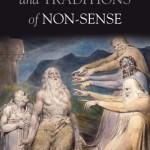We run our website the way we wished the whole internet worked: we provide high quality original content with no ads. We are funded solely by your direct support. Please consider supporting this project.

Did Jesus Say That God Causes Blindness?
As he went along, he saw a man blind from birth. His disciples asked him, “Rabbi, who sinned, this man or his parents, that he was born blind?” “Neither this man nor his parents sinned,” said Jesus, “but this happened so that the works of God might be displayed in him (Jn 9:1-3, NIV)
Commentators typically appeal to this passage as evidence that God causes infirmities, for in this translation, it looks like Jesus is saying God caused this man to be born blind for his own glory. (For some examples, see God at War, 231-2). Before I comment on this translation, I want to first note that, even if we grant this translation, it would be the only verse in the Gospels that suggest such a thing. In every other instance where Jesus encounters people with afflictions, he (and/or the Gospel authors) claim they are the result of demonic activity. Hence Peter summarizes Jesus’ ministry by saying, “he went around doing good and healing all who were under the power of the devil, because God was with him” (Ac 10:38). (For a full discussion of this, see God at War, ch.7).
Not only this, but Jesus elsewhere rebukes people for suggesting that God was behind people’s suffering (Lk 13:1-5). And finally, notice that, even in this translation of John 9:1-3, God caused this man to be born blind “so that the works of God might be displayed in him.” Hence, even this translation provides no grounds for concluding that God causes any afflictions for his glory, let alone that God is behind all afflictions for his glory. This passage indicates that God is glorified in the healing of afflictions, not in the afflictions themselves.
Having said this, there is no good reason to accept this translation. In God at War (233) I note that the phrase “this happened so that” is not in the original Greek. The Greek simply has hina (“that” or “let”) with the aorist subjunctive passive of phaneroō (“to manifest”), which often is intended as an imperative (“let x happen”) rather than a purposive clause (“so that x happens”) (e.g., Eph 5:33). (In Greek this is called a “hortatory subjective”). In this case the verse should be translated, “Neither this man or his parents sinned, but let the works of God be displayed.” Jesus is essentially saying to his disciples, “Wrong question. The only thing that matters is that God is glorified by ridding this man of his infirmity.”
I still consider this a much better translation than those that depict God as causing this man to be born blind. However, I recently was graciously sent an alternative translation by Jesse Vaught who pastors The Point. (Actually, Jesse emailed me his insights in January, but I’ve been so obsessed with finishing Crucifixion of the Warrior God that I only recently got to his email). Jesse first notes that hortatory subjunctives are typically in the first person singular, whereas Jesus speaks in the third person singular in his response to his disciples. This is a legitimate (though not necessarily decisive) objection to my proposed translation.
More importantly, however, Jesse notes that Jesus uses the exact same syntax answering the disciples that the disciples use when asking their question. Since the disciples ask their question using hina as a result clause (called a “consecutive hina”), it is most natural to assume that Jesus is answering their question using hina as a result clause. But this doesn’t mean Jesus was suggesting God caused the man to be born blind.
The disciples ask, “Who sinned, this man or his parents, that (hina = ‘with the result that’) he was born blind,” so (in this translation) Jesus answers, “Neither this man or his parents sinned (hina) with the result that he was born blind.” And he then replaces the misguided result clause of the disciples with a different result: “that the works of God should be manifested.” Hence, Jesus is answering his disciples by saying: “Neither this man nor his parents sinned (with the result that he was born blind), but with the result that the works of God be manifested in him.”
I have to concede that, while it feels counterintuitive, Jesse’s translation is grammatically sounder than the one I proposed in God at War. And while it seems strange for Jesus to construe people not sinning as resulting in the works of God being manifested, it fits the ironic and hyperbolic way Jesus frequently turned people’s question on their head (e.g., Matt 22: 15-22). In Jesse’s interpretation, Jesus is completely (and somewhat hyperbolically) reversing the perspective of the disciples, thereby abolishing any suggestion that this man’s blindness was the result of he or his parents sinning. Whereas the disciples’ question implied that this man’s sin or the sin of his parents resulted in his blindness, Jesus went to the other extreme by suggesting that their not sinning actually resulted in the works of God being manifested.
I am still up in the air, but I confess that, if I was forced to make a choice today, grammatical considerations alone would lead me to throw my hat in the ring with Jesse’s proposed translation. But there is no one forcing a choice, and there is certainly nothing wrong with simultaneously embracing two alternative translation options, especially when they both undermine a primary proof text for those who want to believe God causes peoples’ afflictions.
Thanks to pastor Jesse for taking the time to send me his thoughts – even though it took me six months to discover them!
Image by jmtosses via Flickr
Category: Q&A
Tags: Blueprint Worldview, God at War, Sickness, Spiritual Warfare, Theodicy, Warfare Worldview
Topics: The Problem of Evil
Verse: John 9
Related Reading

Were the Consequences for Adam & Eve’s Choice Fair?
In this episode Greg ponders Adam and Eve’s choice and the enormous consequences of that seeming arbitrary decision. Links: Greg’s book: “God at War“ http://traffic.libsyn.com/askgregboyd/Episode_0021.mp3

Hearing and Responding to God: Part 2
In this video, Greg continues his thoughts about the difficulties we can encounter when we try to hear God speaking to us. You can view the first part here.

Ralph D. Winter Lectureship
Greg has been invited to give this year’s lectures for “The Ralph D. Winter Lectureship,” this April 25 and 26. Greg’s lectures will be on the Biblical Warfare Worldview and its implications for understanding evil, especially “natural” evil and for our understanding of the Christian Life and missions. Greg will also join a panel of…

Sermon: God Needs Prayer
In this sermon clip, Greg Boyd discusses some of the challenges we face when praying. The full sermon wrestles with questions like: If God is all-powerful, does he need our prayers to change this world? And is it even worth praying if we can’t see the results? Greg addresses these questions as he begins a…

Evil, St. Augustine, & the “Secret” Higher Harmony
The problem of evil constitutes the single most difficult challenge to Christian theism. Volumes upon volumes have been written with the express purpose of rationally reconciling the belief in an all-good and all-powerful God with the reality that life is frequently an inescapable nightmare. Indeed, it is not overstating the case to claim that no…

God of Sense and Traditions of Non-Sense
As the title suggests, in his book, God’s Problem: How The Bible Fails to Answer Our Most Important Question – Why We Suffer, Bart Ehrman argues that the Bible has nothing compelling to say about the problem of evil. Well, I just put down a beautifully written four-hundred and fifty page book that compellingly argues…
